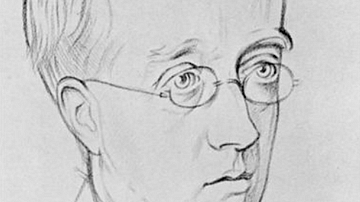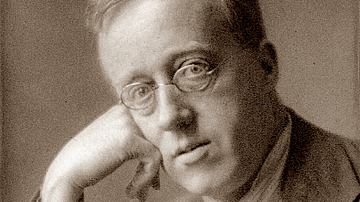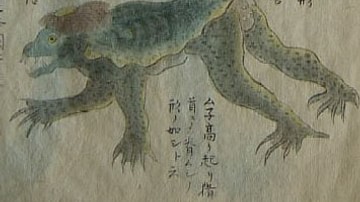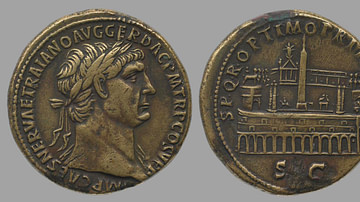Search Images
Browse Content (p. 239)

Image
Gustav Holst by Rothenstein
A 1920 portrait of the British composer Gustav Holst (1874-1934) by William Rothenstein.
Taken from, Music & Letters (Oxford University Press) Vol. 1, No. 3 (July, 1920), pp. 181-190.

Image
Gustav Holst, 1921
A 1921 photograph of the British composer Gustav Holst (1874-1934) by Herbert Lambert. (National Portrait Gallery, London)

Image
Delphi Charioteer
Life-size bronze charioteer statue, set up by the tyrant Polyzalus from Sicily as a tribute to Apollo, likely to commemorate his victory in the Pythian Games held at Delphi every four years in 474 or 470 BCE. It was part of a larger four-horse...

Image
Japanese Kappa, a Water Sprite
Drawing of a Japanese kappa, supposedly caught in 1801 in Mito domain. Illustration from an 1836 copy by Reikai of Suiko Kōryaku by Koga Tōan. The inscription reads: Height 3.5 shaku, weight 12 kamme. The chest protudes, the neck is short...

Image
A Young Charioteer
Marble bust is of a young, successful, and wealthy charioteer, part of a group of seven busts discovered in 1889 during the construction of Trastevere train station in Rome; located on the eastern slopes of Monteverde Hill, called Horti Caesari...

Image
Dolley Madison
Dolley Madison, wife of President James Madison and First Lady of the United States from 1809 to 1817. She is credited with helping to define the role of the First Lady in US politics. Oil on canvas portrait by Gilbert Stuart, 1804. White...

Image
Burning of Washington, D.C.
British soldiers burn Washington, D.C., on 24 August 1814 during the War of 1812, setting fire to several buildings, including the White House and the US Capitol. Illustration is from The History of England, from the Earliest Periods, Vol...

Image
Portrait of James Madison, 1783
Miniature portrait of future US President James Madison in 1783, when he was a 32-year-old delegate to the Continental Congress. Watercolor on ivory, by Charles Willson Peale, 1783. This miniature was given to Catherine 'Kitty' Floyd, who...

Image
James Madison
James Madison, fourth President of the United States, portrait by John Vanderlyn, 1816.
White House Historical Association (White House Collection), Washington, D.C.

Image
Sestertius Commemorating Trajan's Rebuilding of the Circus Maximus
Sestertius commemorating Trajan's rebuilding of the Circus Maximus, showing the Arch of Titus (not to be confused with the Arch of Titus built over the Via Sacra), which looks down from the upper left, quadrigae (four-horse chariots) surmounting...